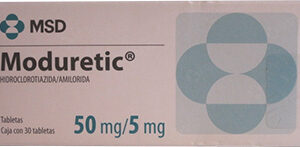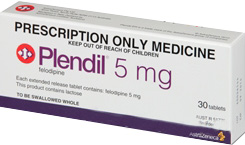Dipyridamole, also known by its brand name Persantine, is a medication commonly used to prevent blood clots and improve blood flow in individuals with certain medical conditions. It belongs to the class of drugs known as platelet aggregation inhibitors and is available in various forms such as tablets, capsules, and injectables. Dipyridamole works by inhibiting the uptake of adenosine, a chemical that affects blood flow, thereby increasing the amount of adenosine in the blood vessels and promoting vasodilation. This drug is primarily used in combination with other medications, such as aspirin, for its antiplatelet effects. It is mainly prescribed for individuals who have undergone heart valve replacement, coronary artery bypass surgery, or those at risk of thromboembolic disorders.
Do’s and Don’ts
Dipyridamole is contraindicated in individuals with the following conditions or circumstances:
- Known hypersensitivity to dipyridamole or any of its components.
- Active bleeding, including bleeding disorders or recent hemorrhagic stroke.
- Severe liver dysfunction.
- Severe low blood pressure (hypotension).
- Recent myocardial infarction (heart attack) or acute coronary syndrome.
- Unstable angina or other acute cardiac conditions.
- Asthma or history of bronchospasm.
- Pregnancy or breastfeeding.
Side Effects and Solutions
Like all medications, dipyridamole may cause certain side effects in some individuals. Common side effects include:
- Headache
- Dizziness
- Nausea and vomiting
- Diarrhea
- Abdominal pain
- Flushing or hot flashes
In most cases, these side effects are mild and temporary. If these side effects persist or worsen, it is advisable to consult a healthcare professional. Serious side effects are rare but can occur and may include bleeding, allergic reactions, or severe liver problems. If any of these serious side effects are experienced, immediate medical attention should be sought.
Dipyridamole Dosing
Dipyridamole should be taken as directed by a healthcare professional and in accordance with the prescribed dosage. The usual recommended dosage varies depending on the individual’s condition and response to treatment. It is important to follow the prescribed schedule and not to exceed the recommended dose. In case a dose is missed, it should be taken as soon as remembered, but if it is close to the time for the next dose, it is advisable to skip the missed dose and continue with the regular dosing schedule. Taking a double dose to make up for a missed dose is not recommended.
In the event of an overdose, medical attention should be sought immediately. Symptoms of overdose may include severe dizziness, fainting, rapid heartbeat, chest pain, or difficulty breathing. It is essential to inform healthcare professionals about all medications, supplements, and herbal products being taken to prevent drug interactions and potential complications.
Dipyridamole Compatibility
Dipyridamole may interact with certain medications and substances, potentially altering their effectiveness or increasing the risk of side effects. It is important to inform healthcare professionals about all medications, including prescription, over-the-counter, and herbal products, being taken. Potential interactions may occur with drugs such as anticoagulants, antiplatelet agents, blood pressure medications, theophylline, and adenosine antagonists. It is advisable to consult healthcare professionals about potential drug interactions and seek their guidance.
Ask and Answer
-
Question: Can dipyridamole be used during pregnancy?
Answer: Dipyridamole should be avoided during pregnancy as it may harm the developing fetus. It is essential to consult a healthcare professional for guidance on alternative medications or treatment options. -
Question: Can dipyridamole be used in children?
Answer: Dipyridamole is not commonly used in children. The safety and efficacy of this medication in pediatric populations have not been extensively studied. It is important to consult a healthcare professional for guidance on appropriate treatment options for children. -
Question: Can dipyridamole be taken with food?
Answer: Dipyridamole can be taken with or without food. However, certain food items or beverages, such as grapefruit or grapefruit juice, may interact with dipyridamole and should be avoided. It is advisable to consult healthcare professionals for specific instructions regarding food and drug interactions. -
Question: How long does it take for dipyridamole to start working?
Answer: The onset of action of dipyridamole may vary among individuals and depends on the specific condition being treated. It is advisable to consult healthcare professionals for more information on the expected timeframe for the medication to take effect. -
Question: Can dipyridamole be stopped abruptly?
Answer: It is important to follow the prescribed treatment plan and not to discontinue dipyridamole abruptly without consulting a healthcare professional. Suddenly stopping the medication may increase the risk of blood clots and other complications. The dose should be adjusted or gradually tapered off under medical supervision.






Reviews
There are no reviews yet.